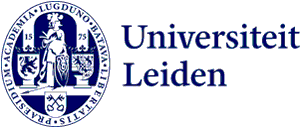FGGA 's Follow-up Strategy Plan 2026–2030: How are things going? (Part 2)
As you know, the faculty is working on a follow up strategy built around six different themes. Each theme now has its own writing team. Every week we speak with one of these teams about the content of their theme, and share an update in the newsletter. This weeks theme: AI led by Niels Laurens.
Disclaimer: this theme is still very much in development, so the direction outlined below may change.
Which colleagues are in your group?
We aim to speak with as many people as possible and draw on insights that are already available. This is especially important given that AI is not a strategic theme in itself, but rather supportive across all disciplines and strategic themes. So far we have spoken with Praneet Khandal, Annabel Goth, Linde Desmaele, and Damien van Puyvelde.
Can you tell us something about the theme you are working on? And how does it fit within the facultys broader strategic development?
AI is a cross cutting theme that touches education, research, valorisation, and operations. The question is: what position does FGGA want to take? Should we lead the way, and if so in which domains? Where should we remain critical, and where should we dare to step outside our comfort zone? A recurring point is that our work whether teaching, research, or support remains fundamentally human, with personal contact highly valued. For example, when considering an AI chatbot, this balance is crucial. We deploy AI where it adds value, but remain alert to the limits of technology. Students, lecturers, and researchers are at the centre, and learning, research, and facilitation take place within a community not just behind a screen. Compliance is important, but equally so is creating the right environments to experiment safely and without barriers when it comes to AI.
Do you expect major changes compared to the current situation?
In ICT developments, every day looks different from the last. Progress is not only rapid but often comes in unexpected leaps.
How do you see these changes being realised?
What matters is how we position ourselves, how we respond, and who we involve. Some people will be eager to get started, while others may be more hesitant. Bringing together and making visible who is working on what in this field is important to us. Equally, we need to look ahead in terms of AI literacy both on the preventive side for example in assessment and on the side of pushing boundaries.
How can colleagues get involved?
If you find this an exciting and interesting topic, get involved. Seek out colleagues who are also experimenting with AI.
More information about the follow-up strategy can be found here: About - Leiden University.
In the coming period, all interviews with the various writing teams will be completed and published here. These will also be briefly highlighted in the newsletter.
